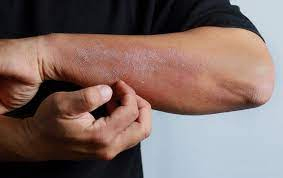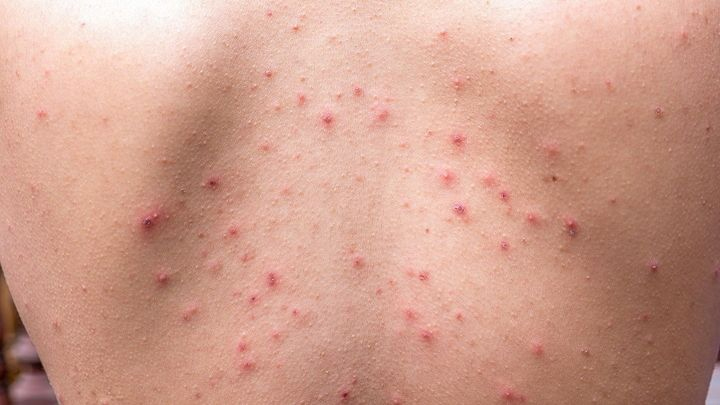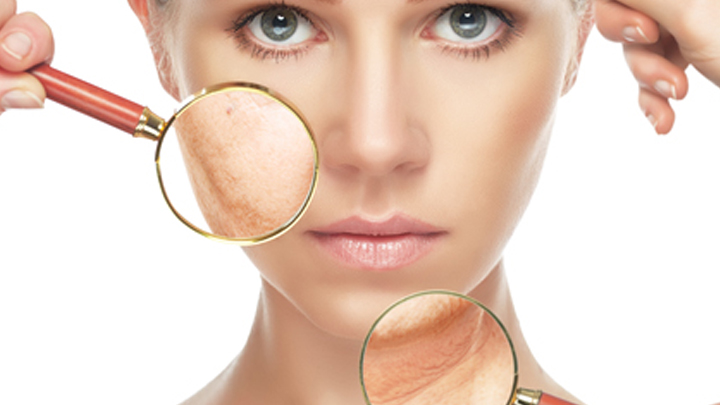Introduction:
Our skin acts as a barrier against the environment in addition to being the biggest organ in our body. However, just like any other part of our body, the skin is prone to a number of ailments that can be uncomfortable and have an impact on our general health.
We’ll look at some of the most prevalent skin problems in this blog, along with their causes, signs, and treatments. Please be informed that all the below information have been shared after discussing with trusted skin specialist doctor in Siliguri and also from the information available on reliable sources.
Knowing these things can make it easier to spot and treat these issues, resulting in healthy and beautiful skin.
Let’s learn more in depth about the Common Skin Conditions from the perspective of a skin doctor in Siliguri-

Broad spectrums of dermatological illnesses or anomalies that affect the skin are referred to as common skin ailments. The severity and appearance of these illnesses varies, and they can affect any portion of the body.
They may be brought on by a mix of genetic and environmental factors, immune system issues, infections, hormone abnormalities, and environmental triggers.
Some of the most common skin conditions include:

- Acne:
According to the dermatologists in Siliguri, the development of whiteheads, blackheads, and pimples on the skin is a sign of acne. Usually brought on by hormonal changes during adolescence, it can afflict people of various ages.
- Eczema:
Atopic dermatitis, often known as eczema, is a long-term inflammatory disorder that causes dry, itchy, and red skin. It frequently manifests in early childhood and may be brought on by allergies, irritants, stress, or genetic predispositions.
- Psoriasis:
Skin cells quickly accumulate as a result of the chronic inflammatory illness psoriasis, resulting in thick, red areas that are coated in silvery scales. The best skin specialist doctor in Siliguri says that it can be brought on by certain illnesses, stress, or drugs and is thought to have a hereditary component.
- Rosacea:
Chronic redness, flushing, and the formation of visible blood vessels are all symptoms of rosacea, a skin disorder that mostly affects the face. It frequently manifests in adulthood and may be brought on by substances like alcohol, hot liquids, spicy meals, or sun exposure.
- Dermatitis:
The term “dermatitis” is used to describe a variety of skin inflammations, such as contact dermatitis (caused by exposure to irritants or allergens), seborrheic dermatitis (characterised by scaly patches on the scalp, face, and other areas), and nummular dermatitis (characterised by oval-shaped patches of itchy skin).
- Hives:
Skin specialist doctor in Siliguri states that Urticaria, or hives, are raised, itchy welts on the skin that can be brought on by a variety of things, such as drugs, infections, or physical stressors like pressure, heat, or cold.
- Fungal Infections:
Different fungi can cause common skin disorders including athlete’s foot (tinea pedis), ringworm (tinea corporis), and yeast infections (caused by Candida). The feet, groyne, scalp, and nails are just a few of the body regions where these diseases can develop.
- Warts:
Skin growths known as warts are brought on by the human papillomavirus (HPV). They come in a variety of sizes and shapes and can arise anywhere on the body. Common warts can be seen on the hands and fingers, plantar warts appear on the soles of the feet, and genital warts are spread during sex.
What are the causes of Common Skin Conditions?

- Genetic Predisposition:
According to the best skin specialist doctor in Siliguri Eczema, psoriasis, and rosacea are a few skin disorders with a strong hereditary component. These diseases may be more likely to occur in those with a family history of them.
- Environmental Triggers:
Skin diseases including eczema, contact dermatitis, and rosacea can be triggered or made worse by environmental variables such allergens, irritants, heat, humidity, pollution, and exposure to certain chemicals.
- Immune System Dysfunction:
Various skin problems can be caused by immune system disorders. When the immune system erroneously assaults healthy skin cells, autoimmune illnesses like psoriasis and lupus develop, resulting in inflammation and other symptoms.
- Infections:
Additionally, infections brought on by bacteria, fungus, or viruses can result in skin disorders. Examples include viral illnesses like cold sores brought on by the herpes simplex virus, fungal infections like athlete’s foot and ringworm, and acne brought on by the Propionibacterium acnes bacteria.
- Hormonal Imbalances:
Dermatologists in Siliguri says that certain skin disorders might occur as a result of hormonal changes. For instance, acne frequently appears throughout puberty as a result of elevated testosterone levels. Additionally affecting the skin and causing disorders like melasma or adult acne are hormonal changes that occur after pregnancy or menopause.
- Lifestyle Factors:
Skin issues can develop or get worse as a result of unhealthy lifestyle choices such a bad diet, insufficient exercise, smoking, drinking too much alcohol, and using inadequate skincare products.
- Stress:
Skin disorders can develop and worsen as a result of psychological stress and emotional issues. Eczema, psoriasis, and acne flare-ups are all susceptible to being brought on by stress.
- Allergies:
Skin problems like allergic contact dermatitis or hives can result from allergic responses to specific items like pollen, pet dander, certain foods, or drugs.
It’s crucial to keep in mind that there may be several variables contributing to the development or aggravation of a skin problem.
Common skin diseases may be managed and prevented by recognising and avoiding triggers, leading a healthy lifestyle, and receiving the right medical care.
A skin specialist doctor in Siliguri should be consulted for a precise diagnosis and individualised treatment plan.
Symptoms of Common Skin Conditions

- Skin redness is a frequent sign of a variety of skin diseases, including dermatitis, eczema, rosacea, acne, and psoriasis. The degree of the redness might change, and it may only be present in a small part of the skin or cover a greater area.
- Eczema, hives, fungal infections, and allergic responses are all common illnesses that cause itching, also known as pruritus. It can range from moderate to severe, and it may prompt a person to scratch, which can aggravate the skin even more and perhaps result in secondary infections.
- Changes in the skin’s appearance, such as lumps, blisters, red spots, or elevated regions, are what define rashes. Contact dermatitis, allergic responses, hives, fungal infections, and several autoimmune illnesses are among the ailments that can cause rashes.
- Eczema, psoriasis, and ichthyosis are several disorders that frequently exhibit symptoms of dry skin. It can cause irritation and a dull look by causing the skin to flake, scale, and develop rough areas.
- Swelling, warmth, and tenderness of the afflicted region are classic signs of inflammation in many skin disorders. It can happen in disorders including dermatitis, eczema, psoriasis, and acne.
- Warts, psoriasis, and acne frequently show as elevated lumps or lesions on the skin. Small, fluid-filled blisters to bigger, scaly plaques or nodules might all be examples of these.
- Under some circumstances, skin colour changes may happen. For instance, rosacea can result in persistent face redness, whereas vitiligo causes areas of white skin due to the loss of skin colour.
- Some skin disorders, including the varicella-zoster virus-caused shingles, can cause pain or discomfort. Pain in a variety of skin disorders can also be exacerbated by open sores, infections, or underlying inflammation.
Treatments of Common Skin Conditions-

Depending on the exact ailment, its severity, and personal circumstances, many therapies are available for common skin problems.
It’s vital to remember that seeing a skin specialist doctor in Siliguri is necessary to get a precise diagnosis and a customized treatment plan.
Topical Medications:
Topical drugs are administered directly to the afflicted region to treat a variety of skin problems.
These may include:
- These anti-inflammatory drugs aid in reducing inflammation, itching, and redness. For ailments including eczema, psoriasis, and contact dermatitis, they are frequently employed.
- Bacterial infections like acne or impetigo are treated with topical antibiotics.
- These drugs work well against yeast infections, ringworm, and other fungi, such as athlete’s foot.
- Vitamin A is used to make retinoids, which are used to treat psoriasis, acne, and other disorders. They aid in calming inflammation and restoring normal skin cell development.
Systemic Medications:
To treat more severe or extensive skin disorders, skin specialist doctor in Siliguri may occasionally administer oral or systemic drugs. These drugs tackle the underlying causes by acting within. Examples comprise:
- Given when topical medications are ineffective against severe acne or bacterial skin infections.
- When topical medications have failed to control a disease, such as severe psoriasis or eczema, oral medications are used. They aid in reducing inflammation and the immunological response.
- Doctors may prescribe these drugs to treat hives or allergic reactions as well as to reduce itching.
Moisturizers and Emollients:
To effectively treat dry skin disorders like eczema and psoriasis, the skin must be kept well-hydrated. The natural barrier function of the skin is restored and preserved by regular use of moisturisers and emollients.
Phototherapy:
To treat illnesses including psoriasis, vitiligo, and eczema, phototherapy, commonly referred to as light therapy, involves exposing the skin to particular wavelengths of light. Inflammation is lessened, and aberrant skin cell development is slowed.
Lifestyle Modifications:
A few lifestyle adjustments can support medical therapies and aid in the management of skin disorders.
These may include:
- Recognising and staying away from conditions-worsening triggers, such as certain foods, irritants, allergies, or environmental variables like extreme heat or cold.
- Adopting a moderate skincare regimen that includes using light cleansers, staying away from harsh chemicals or scents, and limiting sun exposure.
- Stress-related skin diseases like eczema or psoriasis can be managed with the use of stress reduction measures like exercise, meditation, or counselling.
Surgical or Procedural Interventions:
Surgery or dermatological treatments could be required in some circumstances. These may consist of:
- Surgical removal of benign tumours, skin tags, or warts.
- Cryotherapy or laser therapy to diminish or get rid of blood vessels, scars, or undesirable colouring.
- Chemical peels or microdermabrasion help smooth out the texture of the skin and lessen the visibility of fine wrinkles or acne scars.
Why choose The Skin Innovation for skin treatment in SIliguri?

Choosing a trusted skin specialist doctor in Siliguri for skin treatment is essential for optimal care. With their expertise and qualifications, they possess the knowledge and skills to accurately diagnose and treat various skin conditions.
The Skin Innovation provide personalized treatment plans tailored to individual needs, taking into account factors like skin type, medical history, and lifestyle. We stay updated with the latest advancements in dermatology, ensuring access to the most effective and safe treatments.
By entrusting your skin health to the best skin specialist doctor in Siliguri, you can have confidence in receiving reliable advice, accurate diagnosis, and comprehensive care, leading to improved outcomes and overall satisfaction.
Contact us – +91 76308-00284 || +91 90020-32484
Contactskininnovation@gmail.com || www.theskininnovation.com

